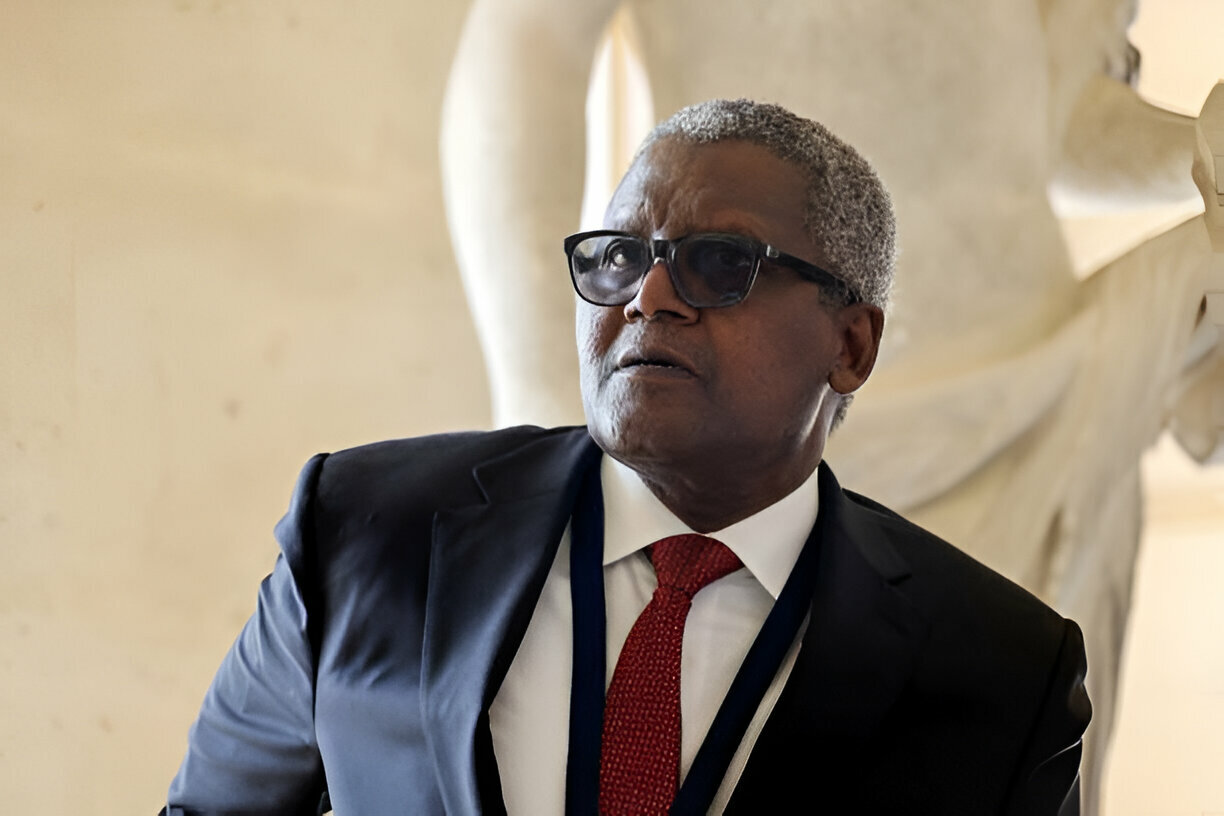
Nigeria’s business mogul, Aliko Dangote has disclosed that out of $5.5 billion borrowed for the building of the refinery, $2.4 billion interest and principal has been paid back presently.
Dangote, while speaking on the theme Industrial Transformation to Build Bridges: The Global Africa Vision and Experience of the Dangote Group,’ said the money borrowed to construct the refinery situated in 2,685 hectares and 34 square metres of land was based on the balance sheet at the time when the naira was still very strong.
“We borrowed $5.5 billion, we paid a lot of interest as we go along because the project was delayed due to lack of land and for almost five years, we did not do anything, we started in 2018. “We have paid interest and principal of about $2.4 billion and we only have $2.7 billion left to be paid. We have done very well for a project of that magnitude,” he said.
He said the refinery would become Nigeria strategic reserve in terms of petroleum products which was not in existence before now
Dangote said out of 54 countries in Africa, only two countries are not importing petroleum products while others depend wholly on importation of the product to survive.
According to him, the completion of the project was made possible with the financial support from Afreximbank without interventions from international financial institutions.
“People that sabotaged us at a time became less concerned thinking we were going to fail but fortunately, a lot of bankers did not panic. Again, this refinery would not have been possible without Afreximbank. Without the likes of Afreximbank, it would have been very difficult for us to industrialise.
“When we were building the refinery, we knew that if we had gone with the idea of doing project financing, the international banks would have actually shut it down. You need to go to banks that understand your language, your issues and programmes.
” Forget about other banks, they came to take us to the market to raise bonds, especially during the covid, they thought the COVID would have stopped us from constructing the refinery and they all left but the are now coming back seeing that the project is completed.
“Why we were determined to finish the refinery because, among the 54 African countries, only two are not importing petroleum products.
According to him, there is need to create a harmonised trade among Africans and ensure that the continent produces what it consumes.
On the challenges encountered so far from both local oil producers and IOCs for disrupting the value chain, he said Nigeria, Dangote said:” For 35 years, people used to count good money and you do not expect them to pray for you, you expect them to fight back but we know that Nigeria and subsaharan Africa need the refinery. The mafias in oil are stronger than the mafias in drugs, I know that they exist but not as strong as this.
“But it is part of my life to fight but we will end up winning the fight because the population and government will be on our side because we are doing the right thing.”
He stressed the need for African leaders to bring Africans and bthe Caribbean together to fastrack the continent’s economic growth and prosperity.
Dangote said 25 per cent of Nigeria finished product of fertiliser is currently exported to the U.S, Brazil and Mexico.
In addition, he called for the elimination of obstacles to free movement within the continent, while suggesting that African leaders should push for the adoption of Visa on Arrival in their various countries.
According to him, this would help intra-regional trade and attract more investment for the local market.
Also speaking, Lagos state governor, Babajide Sanwolu said the role of the sub-national in driving Africa shared cannot be over-emphasised.
There is need for Africans to push forward and work for a more fundamental reform and of global economic system.
He pointed out thst telling and amplifying African narrative have largely been driven by the sub-national, noting that It is at this level that a lot of remarkable transformation agenda is taking place.
Sanwolu said if Africans focus only at the nations borders and discussion of African economic influence, GDP growth, migration are on this level, Africa will miss out on the trends and lessons that could be very useful in helping to chart a future journey for a sustainable Africans prosperity and social economic.






